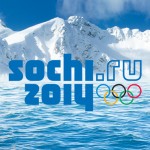Each week in “Under the Sun,” Jonathan Sircy provides cultural history for an issue generating buzz at CaPC. This week, Jonathan responds to the issue of sports skepticism as detailed in Brad Williams’s Holy Huddle column.
Consider the following quotation from English writer Simon Barnes:
“[I]t is better for our souls, to believe in something marvellous that turns out to be false than to sneer at something that turns out to have been marvellous all along.”
What’s shocking about this statement is not its general sentiment but that it comes from piece about “postmodern athletics.”
Barnes claims to have discovered sport’s redemptive possibilities while watching Usain Bolt’s magical 100 meter run in the 2008 Olympics. “The world shifted,” Barnes wrote, “in a little more than nine seconds – from self-protective cynicism to a deep desire to believe, to trust, to hope.”
On the one hand, that’s as overt a religious experience as you’ll find in London’s The Times, Barnes’s employer. In a sports climate generally dominated by cheating and a sport specifically scarred by twenty years of illegal doping, Usain Bolt gave spectators a reason for the same idealism CaPC’s Brad Williams wrote about last week.
Only one thing seems suspicious: those pesky words “to a deep desire…,” as though the substance of that belief, trust, and hope doesn’t actually exist. Barnes seems to be saying, “I know very well, but nevertheless…,” an ideologically loaded phrase if there ever was one. Consequently, it’s fair to ask: do current sports spectators actually believe, or are they deceiving themselves into believing what they know is untrue?
Apparently Usain Bolt’s amazing run did not transcend his sport. Either that or Barnes failed to consider the grueling pressures of high-stakes swimming. Just last week 16-year-old China-born Ye Shiwen won the women’s 400m individual medley and triggered a high-ranking US swimming executive’s skepticism: the performance, John Leonard said, was “unbelievable, disturbing and suspicious.” So the US hinted that China’s athlete cheated, and a Chinese doctor shared his own suspicions about American medal-machine Michael Phelps. We may have a “deep desire” for something more than cynicism, but it can’t or won’t supersede national interests, especially when a medal count’s involved.
As disheartening as the whole Shiwen debacle has been, it feels more authentic than Barnes’s squishy feelings about Usain Bolt. It gives the lie to the idea that our sports viewing is ideologically clean. In fact, the “I know very well” part of Barnes’s argument is not necessarily our deep awareness that people cheat but that we recognize that our sports allegiances say more about us than we want them to.
Our culture uses sports as a form of religious representation. In his epistles, Paul makes it clear that on an eternal level, either the first or second Adam will represent us before God. We can either have the first Adam’s sin or the second Adam’s righteousness. And that representation is not just individual; it’s corporate. We’re on Team Adam or Team Christ. This does not mean sports allegiance has to be idolatry. It just means that the USA/China rivalry gestures towards the spiritually-real concept of representation. We implicitly give the athletes we support the right to speak for us. Consider the insight you get into someone’s character when they tell you they’re a Chicago Cubs fan (i.e. someone who knows that fandom demands faith, “the substance of things hoped for, the evidence of things not seen”). The Olympics pump this representation theme with steroids and set it to a non-stop mixtape of national anthems. Yet, we know these gods, whether they be individuals or nations, are poor substitutes. Look at how people have responded to NBC’s coverage of the games, despite the fact that the network’s talking heads have done little more than use Barnes’s “deep desire to believe, to hope, to trust” as a template for their rhetoric.
Our spectating habits show how conflicted we are. Last Saturday, I watched a group of college students chant “USA” for a full minute after an American swimming victory. These same students will demand that I offer them some pragmatic use for the literature I’m teaching them, ye what are the real-world applications of Michael Phelps’s prodigious skills? Phelps may be the “best in the world” and a walking symbol of “human achievement,” but if he gets in a tank with a blood-hungry shark, his world record time in the 200m butterfly won’t mean much. We know this, yet we pretend like we don’t.
So what is Barnes’s “postmodern athletics”? A simultaneous a) skepticism towards stories of human achievement and b) obsession with constructing those same stories. It is the spiritually weary condition of Barnes and his ilk, seekers who watch the Olympics and repeat this misdirected mantra to the athletes and the nations those athletes compete for: “I believe. Help thou my unbelief.”











